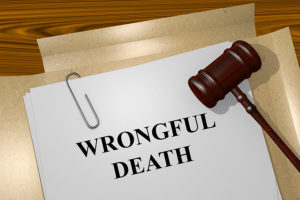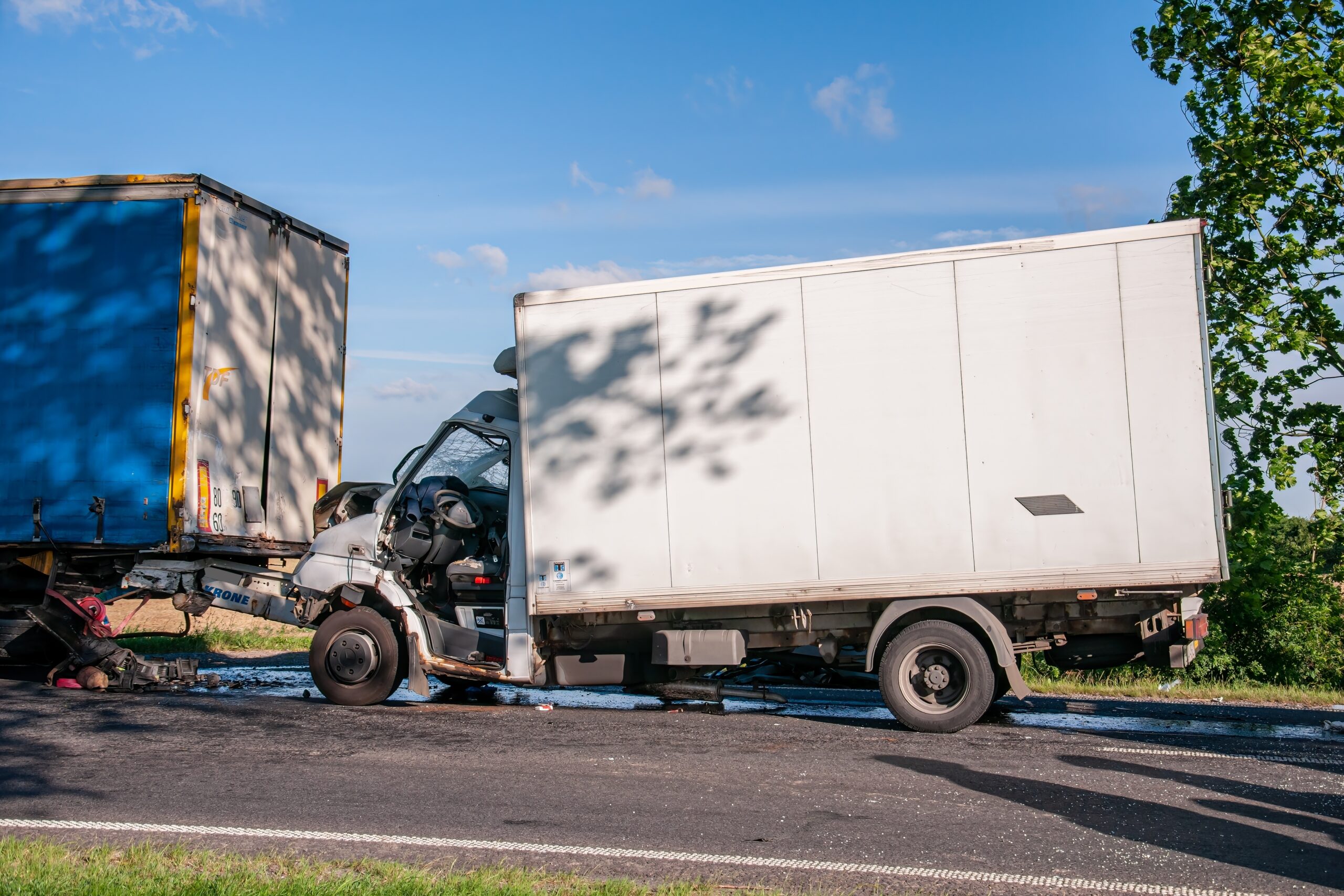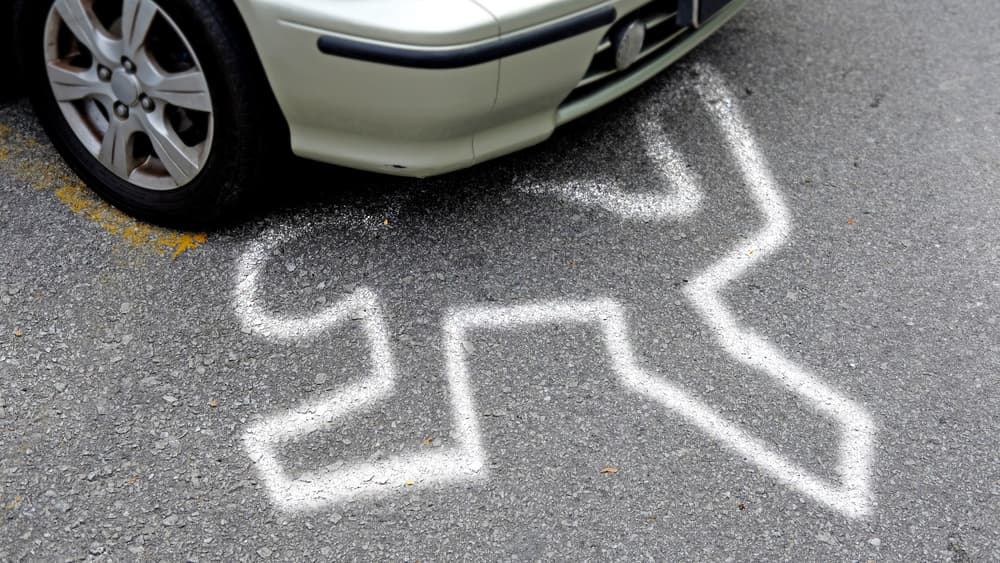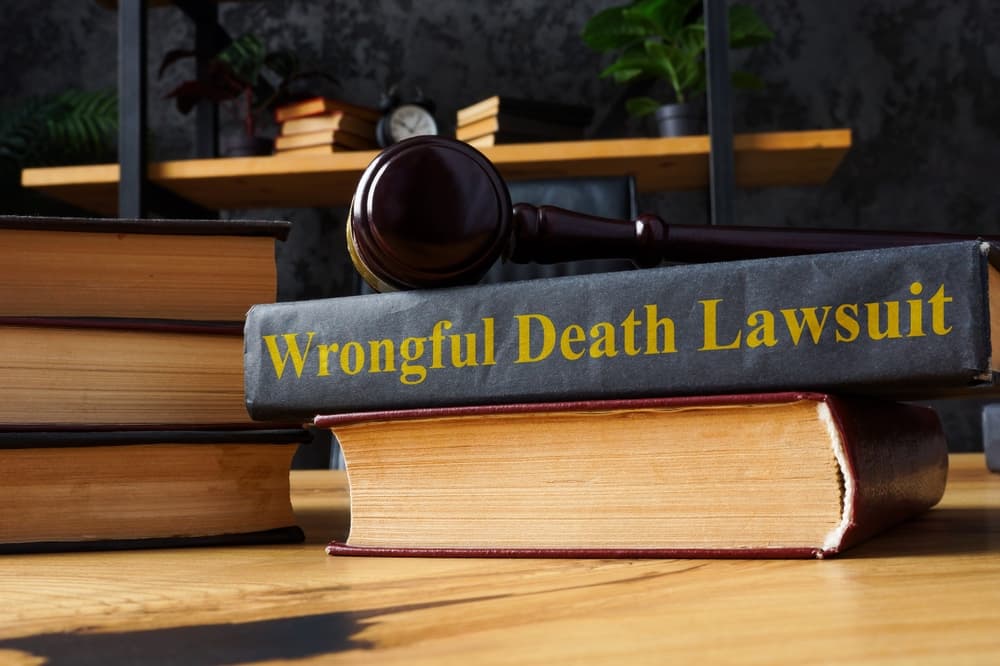Who can file a wrongful death lawsuit? If you're asking that question, you probably have a lot on your mind. One of the worst things that many of us can think of is losing a loved one suddenly in an accident. Knowing a negligent action caused it makes everything worse.
Along with the emotional impact of your loss, you may suffer financial harm after losing your loved one. The law provides a remedy to help ease both the emotional and financial burden. Wrongful death claims protect the bereaved family's legal rights after losing a family member in an accident caused by the negligence of another person or business. Although your loved one gained many relationships they held dear during their life, only certain people may file a wrongful death lawsuit. Contact a wrongful death attorney to learn who can file a wrongful death claim.What Is a Wrongful Death Lawsuit?
 A wrongful death lawsuit is a legal cause of action that is available to specific parties after a loved one dies due to the negligence of another person or entity. The purpose of a wrongful death lawsuit is for the family of the deceased to recover compensation for their loss. Wrongful death laws are different in each state. If you think that you may have a wrongful death claim, speak to a local wrongful death lawyer.
A wrongful death lawsuit is a legal cause of action that is available to specific parties after a loved one dies due to the negligence of another person or entity. The purpose of a wrongful death lawsuit is for the family of the deceased to recover compensation for their loss. Wrongful death laws are different in each state. If you think that you may have a wrongful death claim, speak to a local wrongful death lawyer.
Who Can Sue for Wrongful Death?
Who Can File a Wrongful Death Suit? State law determines who may recover damages for wrongful death. A person who can be a plaintiff in a wrongful death lawsuit also varies from state to state. Despite the state where someone makes a wrongful death claim, certain groups of people are typically allowed to be parties in a wrongful death suit. The following people commonly file complaints for wrongful death.Immediate Family Members
Immediate family members include close family members, often only the family members who live in your home, although residence does not affect the family member’s right to sue. In many states, immediate family members include the deceased person’s spouse, parents, and children. In some states, legally adopted children can recover from a wrongful death claim. However, the law precludes stepchildren and foster children even if they live in the deceased’s home. There is a hierarchy of sorts within the immediate family members who can sue. If the deceased leaves a surviving spouse, the spouse will be the plaintiff in a wrongful death suit alone. If there is no surviving spouse, then the deceased’s children will be named as the plaintiff(s) in the lawsuit. If the children are under eighteen, then a guardian is appointed to represent the children’s interests in the lawsuit. If the deceased did not have a spouse or children at the time of their death, then their parents can file a lawsuit for wrongful death damages. If the deceased and their spouse were divorcing but a court did not finalize it at the time of the deceased’s death, the surviving spouse may file a wrongful death lawsuit. If the divorce was final, the surviving ex-spouse does not have a claim for wrongful death. In that circumstance, the children will be the plaintiff(s) in the wrongful death lawsuit.An Executor or Personal Representative of the Estate
In some states, the deceased’s last will and testament decides who the plaintiff is in a wrongful death lawsuit. If the deceased left a last will and testament, then the executor, a person named in the will, is named as the plaintiff in a wrongful death lawsuit. If the deceased did not leave a last will and testament, then the personal representative of the deceased’s estate is named the plaintiff in a wrongful death lawsuit. An executor is someone named in a person’s last will that they chose to ensure that someone completes the terms of their will after the person’s death. If you die because of another’s negligence, in some states, your executor can act as a plaintiff in a wrongful death lawsuit. The executor’s service as the plaintiff will mirror their other work as the executor. Just like how the executor is responsible for paying the estate’s bills and that the beneficiaries get the property as the will dictates, the executor will ensure that they use the settlement from the lawsuit to pay medical bills first and then distribute the rest to the deceased’s beneficiaries. You must choose a responsible and trustworthy person to act as your executor. In some states, for a person who died because of another person or entity’s negligence and without a last will and testament, a court will appoint a personal representative. A personal representative performs the same or similar duties as an executor. A personal representative ensures that the estate pays a deceased person’s last debts and that they distribute their property and money to the appropriate heirs. Family members may apply to serve as a personal representative, or the court will appoint someone who may not be a family member, to serve as the deceased’s personal representative. In a wrongful death lawsuit, a personal representative acts as the plaintiff and represents the interests of the family in the lawsuit- just as they will in probate court. In some states, the personal representative will be unable to receive any damages awarded in a wrongful death lawsuit. If an executor or personal representative is the plaintiff in a wrongful death case, the lawsuit is filed on behalf of the estate. If the court awards a judgment, the court may divide the settlement proceeds between the estate and the family. The estate will use the portion allocated to it to pay any outstanding bills related to the accident. The same way that it would be if the deceased survived the accident.Who Can Sue if the Deceased Person is a Minor?
If a child who dies is the subject of a wrongful death lawsuit, their parents are the plaintiffs in the complaint about wrongful death. If the parents were married at the time of the child’s death, both parents are named plaintiffs. If the parents were not married at the time of the child’s death, then the parent who is the primary custodial parent at the time of the child’s death is named as the plaintiff in the lawsuit. Although the lawsuit only names one parent, both parents will receive a share of any settlement proceeds awarded. If the child is adopted, the adoptive parents are each named as plaintiffs in the lawsuit. Adoptive parents may have more of a challenge than biological parents because the adoptive parents must prove that they have legally adopted the child and that the adoption was final before the child’s death. Stepparents and foster parents do not have a legal right to file a lawsuit for wrongful death benefits unless a legal adoption of the child is final at the time of the child’s death. Determining which parent(s) has the right to sue in a wrongful death lawsuit can be confusing and varies from state to state. If you have questions or a complicated issue, contact an experienced wrongful death lawyer in your area.Why Are There Restrictions on Who Can Sue?
The damages that are available in wrongful death lawsuits are specific. The money awarded in wrongful death lawsuits, and any personal injury lawsuit, are intended to compensate or restore the victim to their position before the harm occurred. In a wrongful death claim, the beneficiaries are pursuing the claim to recover from the loss of companionship, guidance, consortium, and other emotional damages and loss of financial support. The deceased person provides those things primarily to their immediate family. In that sense, the law does not entitle people beyond the deceased’s immediate family to wrongful death damages.Who Can I Sue for Wrongful Death Damages?
Typically, a person can sue all responsible parties for wrongful death. If a commercial truck driver operated a truck negligently, the driver and the company they work for are liable for wrongful death. If a truck's manufacturing defect caused the accident, a person can also sue the manufacturer for wrongful death damages. Some parties may be responsible for the accident but have immunity from a lawsuit. The government usually has immunity from litigation. Immunity here means that you cannot sue the government for wrongful death.What Damages are Available in Wrongful Death Cases?
Wrongful death damages include two types of damages. Plaintiffs can recover the damages the deceased person would have recovered and may also separately recover compensation for their emotional damages and loss of support. In a wrongful death case, a plaintiff can collect:- The deceased’s hospital bills
- The fee for the ambulance ride
- The deceased’s property damage
- Funeral expenses
- Burial or cremation expenses
- The emotional damage to the bereaved
- Loss of companionship
- Loss of guidance
- Loss of consortium
- Loss of financial support
- Punitive damages (Punitive damages are available in limited situations, and courts typically only use them for wildly outrageous conduct)
How Do I Collect My Judgment?
The first step to getting compensated is to get a judgment from a judge or jury. The next step is securing the money by collecting it from the defendant.
The ease of getting a judgment depends on who the defendant is. Typically, collecting a judgment is easier if the defendant is a business. The business's insurance company will cut a check for the total settlement amount. If the defendant is an individual, they may not have the money to pay the entire settlement amount. Individual defendants may want to create a payment plan and schedule small periodic payments to satisfy the judgment. A plaintiff can collect a wrongful death settlement in one large payment called a lump sum or small periodic payments over time. The parties must agree on how the plaintiff will collect the settlement. In addition to collecting the money from the plaintiff, they may receive their payments in installments regardless of how they pay the judgment. When a plaintiff receives the money from their settlement in phases, it is called a structured wrongful death settlement. If you receive a settlement and want a structured settlement, an experienced wrongful death attorney will explain wrongful death law and how to set up a structured settlement. The plaintiff can pursue a wage garnishment if the defendant fails to pay the settlement because they can not make the payments or refuses to satisfy the judgment. A wage garnishment is a civil action separate from the original case that creates a legal right in the plaintiff to receive a portion of the defendant's regular income until their judgment is satisfied. Speak to a local attorney to pursue a wage garnishment action.What is the Statute of Limitations For Wrongful Death?
The statute of limitations for a wrongful death claim is two years from the deceased's date of death. This rule mandates that legal action must be initiated within this period if survivors wish to seek compensation for an untimely death. The countdown starts on the date the individual passes away, not the date of the incident that led to the death. Exceptions to this two-year limit exist, particularly involving claims against government entities, where the timeframe may be shorter, and specific procedural steps must be followed. For example, a notice of claim must be filed within 180 days before any lawsuit can be pursued against a government body. Failing to adhere to this statute of limitations generally results in the forfeiture of the right to sue. Therefore, it’s imperative for those affected to consult a wrongful death attorney promptly to ensure compliance with these critical deadlines. An attorney will assess the case's specifics, advise on the applicable statute of limitations, and help navigate the legal process to pursue justice and compensation without delay. How Can a Wrongful Death Attorney Help Me?
Wrongful death laws are complex and vary from state to state. Talk to a wrongful death attorney to maximize compensation and protect your legal rights.
A wrongful death lawyer knows the particularities of state law and can avoid pitfalls that an unrepresented family may face while pursuing wrongful death benefits. While no money can replace the ones we hold dear, receiving compensation from the accident can help you and your family cope with the financial and emotional loss that you suffered. Contact an experienced wrongful death personal injury lawyer today on a contingency fee basis.


